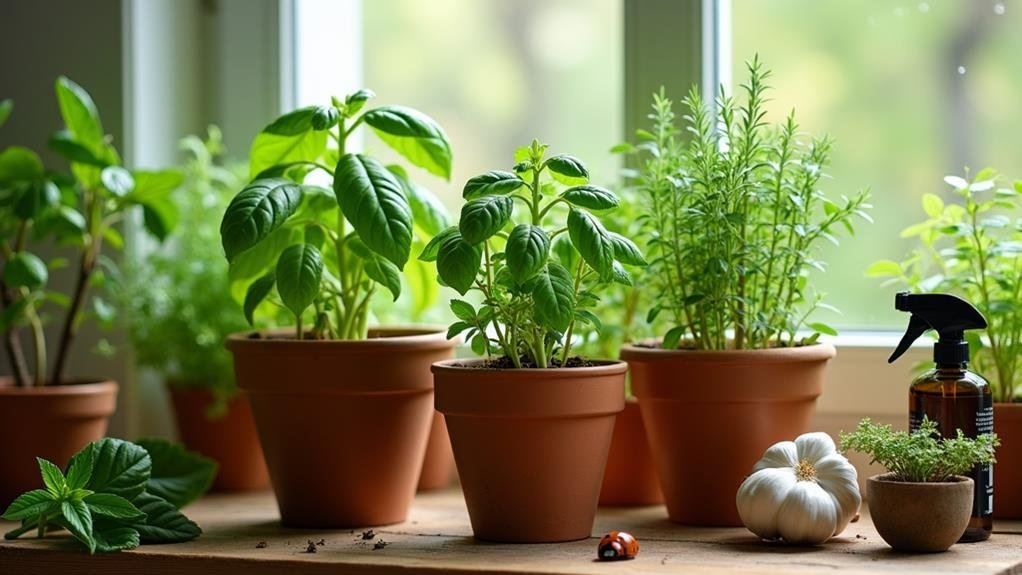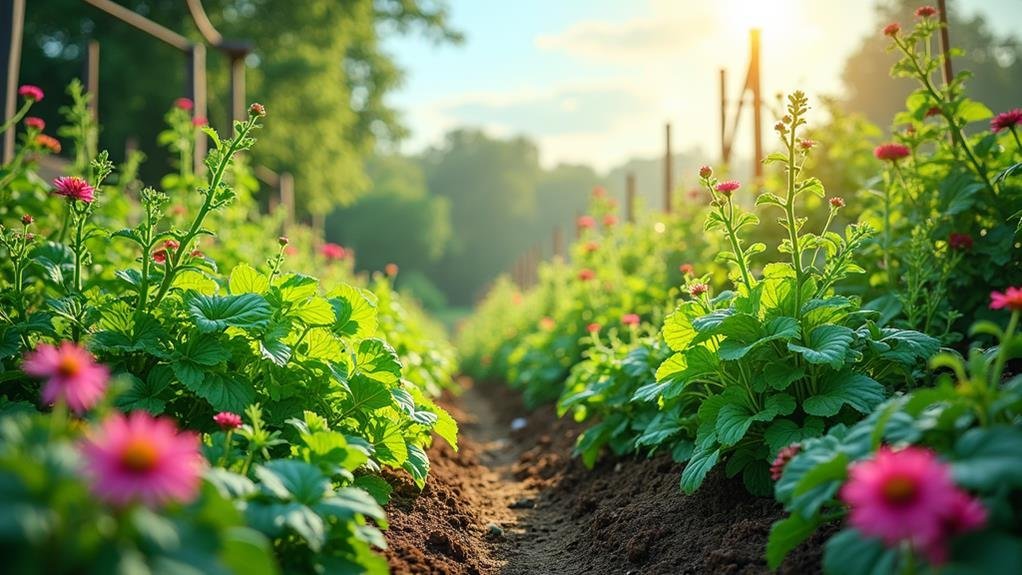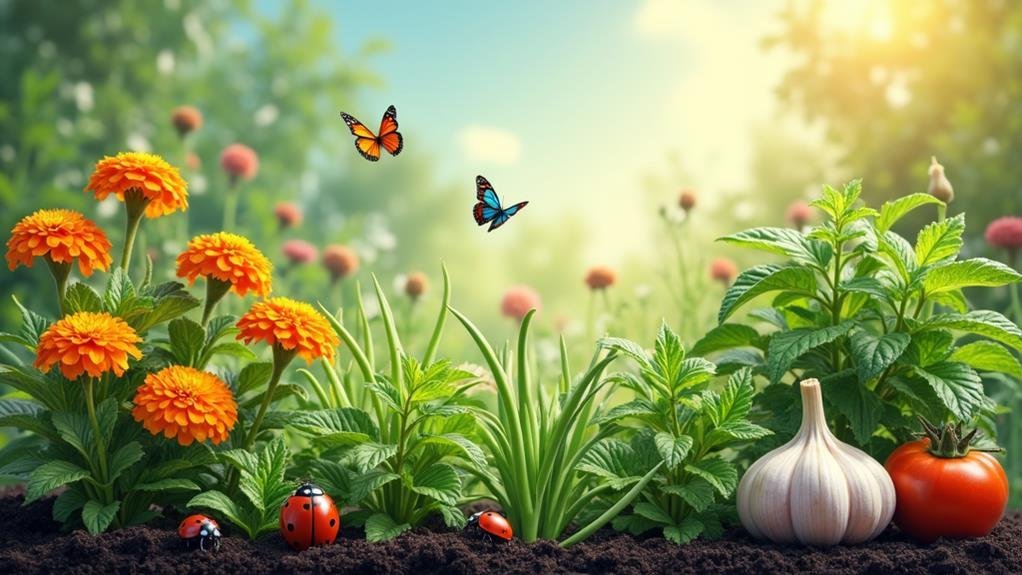If you want to keep your indoor herbs thriving and free from pests, focusing on a few key strategies can make all the difference. Regular inspections are essential, but it doesn't stop there; you'll also want to reflect on natural repellents and how you care for your plants. By fostering a healthy environment, you can create a barrier against infestations. Curious about the specific methods that can help you achieve this? Let's investigate those approaches and see how they can transform your indoor herb garden.
Regular Inspection and Maintenance
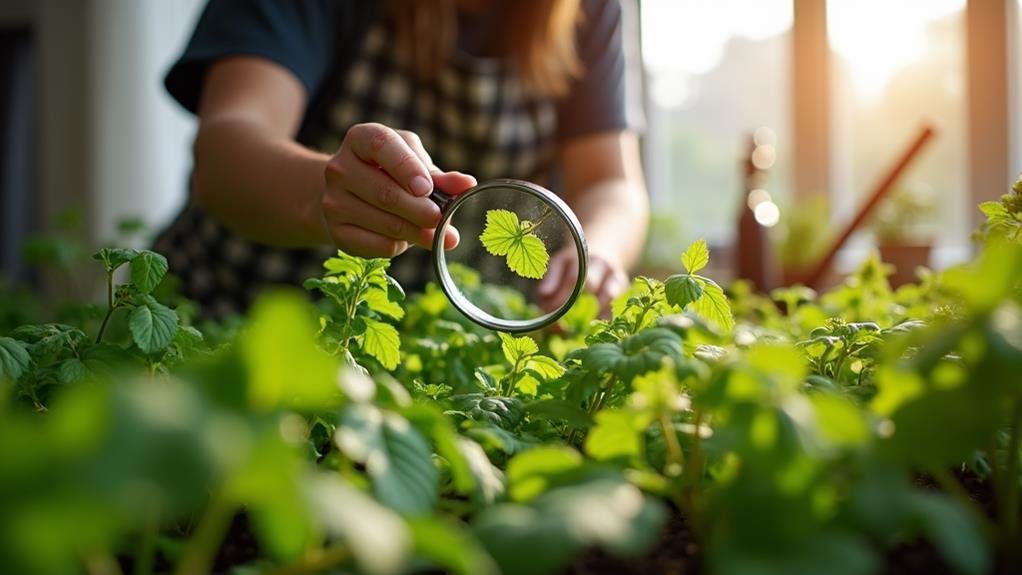
To keep your indoor herbs thriving and pest-free, regular inspection and maintenance are crucial. Start by checking your plants once a week for any signs of pests or disease. Look underneath the leaves and at the soil surface, as these are common hiding spots for troublesome critters. If you spot any pests, act quickly to minimize damage.
Water your herbs carefully, making sure they're not overwatered, which can create a damp environment that attracts pests. Always use clean pots and fresh soil when repotting, as this helps eliminate potential pest eggs or larvae.
Additionally, make certain your herbs get the right amount of light; insufficient light can weaken your plants and make them more susceptible to infestations.
Keep the area around your herbs tidy, removing any dead leaves or debris that could harbor pests. A little pruning can go a long way in maintaining plant health.
Natural Repellents and Barriers
Many indoor gardeners find success using natural repellents and barriers to keep pests at bay. You can start by using essential oils like peppermint, lavender, or rosemary. Simply mix a few drops with water in a spray bottle and lightly mist your herbs. These scents can deter pests while adding a lovely aroma to your space.
Another effective method is to create barriers. Diatomaceous earth, a fine powder made from fossilized algae, can be sprinkled around your herb pots. This natural substance damages the exoskeletons of crawling insects, helping to keep them away. Just be cautious not to apply too much, as it can also affect beneficial insects.
For a more hands-on approach, you can plant companion herbs. Basil, for instance, can repel aphids and flies, while chives deter aphids and spider mites. This strategy not only protects your main herbs but also creates a diverse and vibrant indoor garden.
Lastly, consider insecticidal soap made from natural ingredients. A simple solution of water and mild soap can help control soft-bodied pests like aphids and spider mites without harming your plants.
Keeping your herbs pest-free has never been easier!
Promoting Healthy Plant Growth
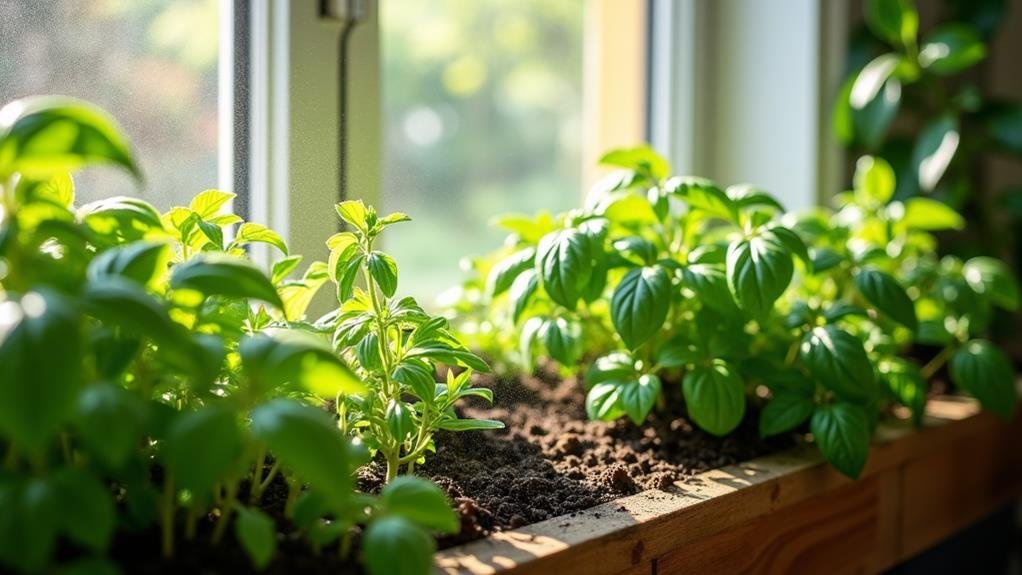
Nurturing your indoor herbs goes beyond pest control; it also involves creating an environment that fosters healthy growth.
Start by choosing the right potting soil. A blend that drains well while retaining moisture is ideal. This guarantees your herbs have the nutrients they need without sitting in water, which can lead to root rot.
Light is another key factor. Most herbs thrive in bright, indirect sunlight. If you're short on natural light, consider using grow lights to supplement. Position your herbs to maximize their exposure, rotating them occasionally for even growth.
Watering appropriately is essential too. Overwatering can be just as harmful as underwatering. Check the top inch of soil—if it's dry, it's time to water.
Don't forget about humidity. Many herbs prefer a bit of moisture in the air. If your home is dry, consider misting your plants or using a humidity tray.
Conclusion
By following these three effective strategies, you can keep your indoor herbs healthy and pest-free. Regularly inspect your plants, utilize natural repellents, and focus on promoting strong growth through proper care. These steps not only protect your herbs but also improve their liveliness, allowing you to enjoy fresh flavors right from your kitchen. Remember, a little attention goes a long way, so stay proactive and your indoor garden will flourish without unwanted visitors. In addition to these strategies, soil preparation tips can also contribute to the overall health of your indoor herbs. Make sure to use well-draining soil and incorporate organic matter to provide essential nutrients to your plants. By starting with a good foundation, you can set your herbs up for success and minimize the risk of pests and diseases. With these comprehensive approaches, you can create a thriving indoor herb garden that enhances the quality of your culinary creations.

